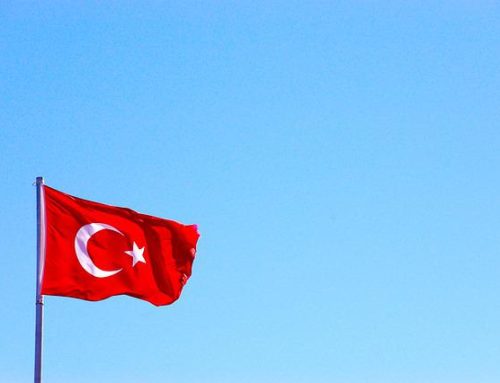November 1, 2022
-
The Global Entrepreneurship Monitor’s 2022 report assesses the conditions for entrepreneurs in 50 countries worldwide.
-
This year, the United Arab Emirates, the Netherlands, and Finland rank at the top of the list of best countries for entrepreneurs.
-
Governments can encourage entrepreneurship by helping start-ups in emergencies such as the pandemic, and supporting women entrepreneurs.
Entrepreneurship depends upon the social and political conditions in which it operates. These can encourage or constrain a new business and have an impact on its growth into a more established enterprise that generates incomes and jobs. For instance, research has highlighted the importance of the rule of law and education systems in encouraging entrepreneurship.
Each year, the Global Entrepreneurship Monitor (GEM) presents its comparative assessment of national entrepreneurial conditions. The aim of this is to rank countries in terms of their ability to encourage new businesses. The results should be of interest to policymakers and entrepreneurs alike.
The GEM 2021/22 report includes a comprehensive National Expert Survey (NES). The NES captures the perspectives of over 2,000 relevant experts (a minimum of 36 per country) across the 50 participating countries, about the conditions governing entrepreneurship in their country.
The table below shows the 13 Entrepreneurial Framework Conditions through which GEM assesses how well each country supports entrepreneurship. GEM produces its National Entrepreneurial Context Index (NECI) by averaging the scores from these 13 conditions.
Not surprisingly, high-income economies perform better than middle- and low-income economies on the NECI scores. The United Arab Emirates (UAE), with the highest NECI score of 6.8, emerges as the best place to start a new business in 2022, followed by the Netherlands, Finland, Saudi Arabia, and Lithuania.
The UAE has the highest total score by a clear margin, having improved in 11 of the 13 framework conditions since 2020, and scoring highest of all economies in four of them. This could be due to a combination of reasons, including the country hosting high-profile entrepreneurship promotion events like Expo 2020.
Meanwhile in Lithuania, a series of policy initiatives focused on entrepreneurship in the last two decades (e.g. the law on social enterprises). The table below illustrates the overall ranking of countries based on the NECI scores, both in terms of the highest and lowest country rankings.
Best countries for entrepreneurs in 2022

The United Arab Emirates (UAE) is first, with the highest NECI score of 6.8 Image: Global Entrepreneurship Monitor
GEM tracks the NECI on an annual basis, and a comparison of data across 2019, 2020, and 2021 shows a general improvement in entrepreneurship conditions in most countries, despite the global pandemic. Of the 35 countries that participated in the NES for each of the three years, the highest increases were in Saudi Arabia (from 5.0 in 2019 to 6.1 in 2021), the UAE (from 5.8 to 6.8), and the Republic of Korea (from 5.1 to 5.7).
There are just two economies whose NECI scores fell for both years: Qatar (5.9 to 5.5) and Luxembourg (5.2 to 4.9). The chart below compares NECI scores each year for the 35 countries.

There has been a general improvement in entrepreneurship conditions in most countries, despite the global pandemic. Image: Global Entrepreneurship Monitor
What can governments do to encourage entrepreneurship?
At least four of the 13 framework conditions are the direct responsibility of national governments. However, these are not the conditions typically rated highest by national experts. This is an excellent opportunity for policymakers to instigate change and promote entrepreneurship by focusing on improvements.
It is no coincidence that the economies scoring highest for government efforts to mitigate the impact of the pandemic on new start-ups (Saudi Arabia), or for supporting women entrepreneurs (UAE), are also economies that have seen consistent and substantial improvements in their overall NECI scores in recent years.
Similarly, economies scoring worst on these measures also tend to have high numbers of conditions rated as insufficient: Israel (9), Turkey (11), and Iran (11). In general, GEM research reveals that supporting new businesses during hard times – such as during the COVID-19 pandemic – and supporting women entrepreneurs, should be key components in a strategy to promote entrepreneurship, enabling it to flourish and make its full and valuable contribution to economic development and growth.
Unsurprisingly, schools would be a good place to start – education is a “low-hanging fruit” for policymakers. Of the 13 ecosystem conditions tracked, entrepreneurial education at school was rated last in 39 of the 50 economies participating in the National Expert Survey in GEM 2021.
A focus on improving these scores could be a relatively low-cost, but high-impact, means of enhancing the entrepreneurial environment, ultimately adding to jobs, and incomes, and generating high value for countries on multiple fronts.
Source: World Economic Forum
Legal Notice: The information in this article is intended for information purposes only. It is not intended for professional information purposes specific to a person or an institution. Every institution has different requirements because of its own circumstances even though they bear a resemblance to each other. Consequently, it is your interest to consult on an expert before taking a decision based on information stated in this article and putting into practice. Neither Karen Audit nor related person or institutions are not responsible for any damages or losses that might occur in consequence of the use of the information in this article by private or formal, real or legal person and institutions.






